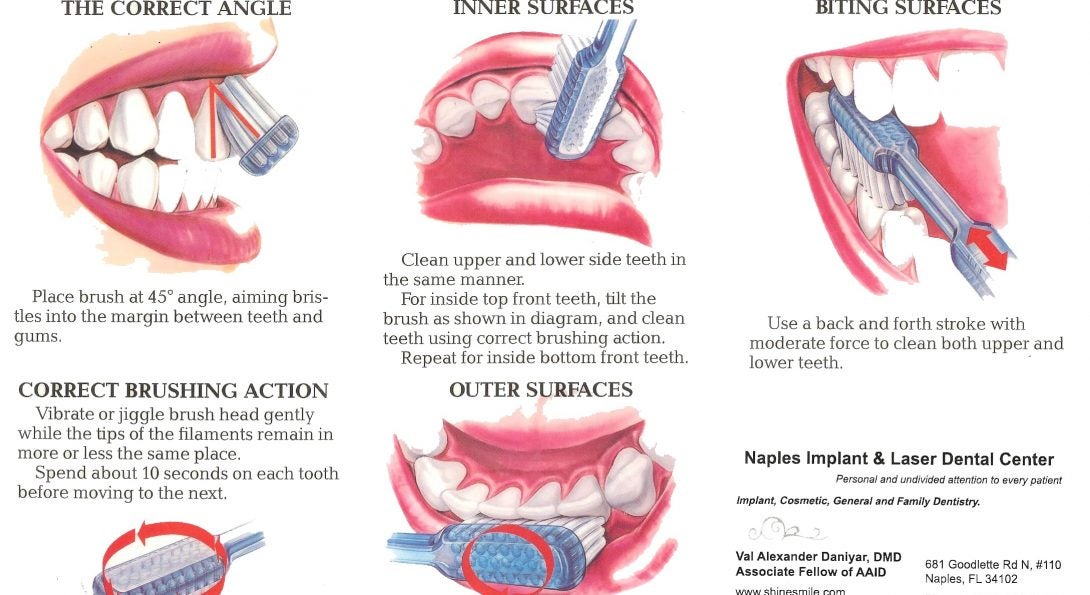
Smile Bright: Essential Dental Hygiene Tips
Maintaining optimal dental hygiene is paramount for a healthy smile that lasts a lifetime. Explore these essential dental hygiene tips to ensure your teeth and gums stay in top-notch condition.
Daily Brushing Routine: Foundation of Dental Care
The cornerstone of dental hygiene is a consistent daily brushing routine. Brush your teeth at least twice a day using fluoride toothpaste and a soft-bristled toothbrush. Pay attention to each tooth’s surface, using gentle circular motions. Brushing effectively removes plaque, prevents cavities, and contributes to overall oral health.
Mastering the Art of Flossing: Between-Teeth Cleaning
While brushing is essential, it’s incomplete without flossing. Dental floss reaches areas between your teeth that a toothbrush can’t access. Make flossing a daily habit to remove trapped food particles and plaque, preventing gum disease and cavities. Proper flossing enhances your overall dental hygiene routine.
Choosing the Right Toothpaste and Mouthwash: Personalized Care
Selecting the right toothpaste and mouthwash is crucial for personalized dental care. Choose a fluoride toothpaste to strengthen enamel and prevent cavities. If you have specific dental concerns, such as sensitivity or gingivitis, opt for products tailored to address those issues. Mouthwash can complement your routine by freshening breath and targeting bacteria.
Regular Dental Check-ups: Professional Monitoring
Professional dental check-ups are essential for monitoring your oral health. Schedule regular visits to your dentist, typically every six months. Professional cleanings remove stubborn plaque and tartar, while check-ups allow early detection of potential issues. Professional dental care is a proactive approach to maintaining a healthy smile.
Balanced Diet for Oral Health: Nourishing Your Teeth
Your diet directly impacts your oral health. Consume a balanced diet rich in calcium, vitamin D, and phosphorus to strengthen teeth and bones. Include fruits and vegetables for essential vitamins and minerals. Limit sugary snacks and beverages, as they contribute to cavities. A nourishing diet supports overall oral health.
Limiting Acidic Foods: Protecting Tooth Enamel
While a balanced diet is crucial, limiting acidic foods is equally important. Acidic foods and beverages, such as citrus fruits and sodas, can erode tooth enamel over time. Consume them in moderation and rinse your mouth with water afterward to minimize the impact on your teeth.
Hydration and Its Impact on Oral Health: Choose Water
Staying hydrated is vital for overall health, including oral health. Water helps rinse away food particles, bacteria, and acids that can lead to tooth decay. Choose water as your primary beverage, especially between meals, to maintain a hydrated and healthy oral environment.
Avoiding Tobacco Products: Preserving Oral Wellness
Tobacco products have severe consequences for oral health. Avoid smoking and smokeless tobacco, as they contribute to gum disease, tooth decay, and oral cancers. Quitting tobacco is one of the most significant steps you can take for your oral wellness and overall well-being.
Protecting Teeth During Physical Activities: Wear a Mouthguard
If you engage in sports or physical activities with a risk of impact, wearing a mouthguard is essential. Mouthguards protect your teeth from injury and prevent damage during accidents. Custom-fitted mouthguards provide optimal protection and are available through your dentist.
Teeth Whitening: Safe Practices for a Brighter Smile
If you desire a brighter smile, explore safe teeth-whitening practices. Consult your dentist before using over-the-counter products to ensure they are suitable for your teeth. Professional teeth-whitening procedures supervised by a dentist offer effective and safe results without compromising dental health.
To explore more about maintaining optimal dental hygiene, visit Dental Hygiene Tips. These essential tips form the foundation for a healthy smile, promoting strong teeth, healthy gums, and overall oral well-being. Incorporate these practices into your daily routine to ensure your smile remains bright and beautiful.

